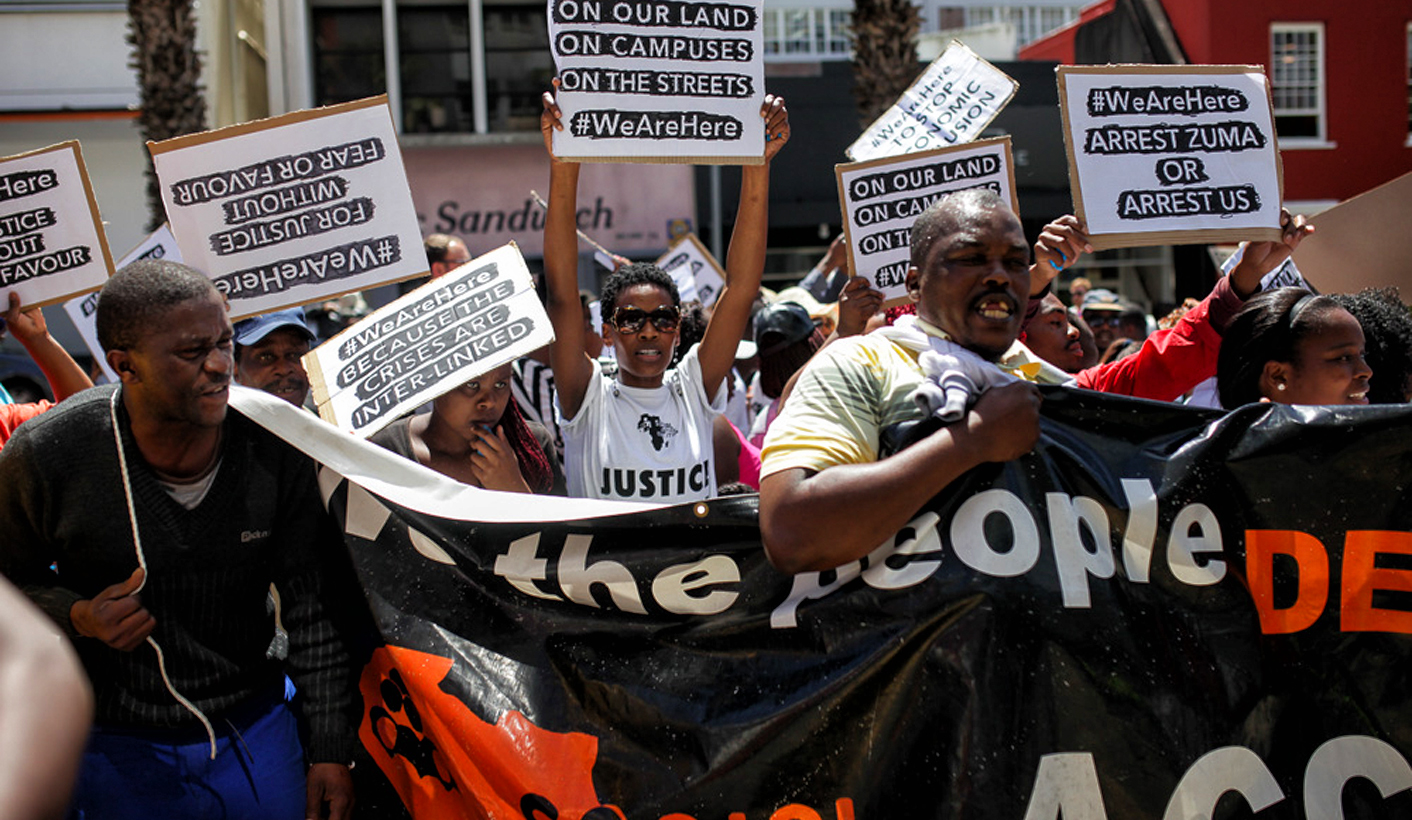The Social Justice Coalition (SJC) will challenge what it calls the criminalisation of protests in the Western Cape High Court on Thursday.
The action arises after activists from the SJC were arrested on September 11, 2013 during a protest outside the offices of Cape Town Mayor Patricia de Lille, GroundUp reported. Activists had chained themselves to the railings of the Civic Centre.
Initially, 21 members of the SJC were arrested, 11 were acquitted and 10 (the “SJC10”), identified as the conveners of the protest, were convicted in February 2015 of contravening the Regulation of Gatherings Act (RGA). They all have criminal records because of that protest.
In 2016, an appeal application was lodged at the Western Cape High Court. “We argue that Section 12(1)(a) of the RGA limits the right to freedom of assembly as guaranteed by the Constitution. It criminalises a gathering of more than 15 people just because no notice was given and is unconstitutional.”
“The criminalisation of citizens who are exercising their rights outlined in the Constitution is deeply worrying. How can it be possible to end up with a criminal record while attempting to peacefully participate in a democratic society?
“This should not be the norm. Section 12(1)(a) of the RGA is in conflict with the right to freedom of peaceful assembly.
“It criminalises people who are simply exercising their constitutional rights,” said the statement.
On Tuesday, the SJC together with the Right2Know campaign and Equal Education held a roundtable discussion on the right to protest.
Phumeza Mlungwana from the SJC said, “They [municipalities] use the process to get us to take routes that we do not want … We understand the need for the notice, but we also understand how it has been abused,” said Mlungwana.
Equal Education Deputy General Secretary Ntuthuzo Ndzomo said that learners who protested for basic rights did not know about the RGA.
“Our stance as the Equal Education is that the courts need to consider the constitutionality of section 12(1)(a) in whatever decision they take.”
“The Constitution allows us to assemble in a peaceful and unarmed manner,” Ndzomo said. “We are a nation where people are protesting on a daily basis.”
One of the SJC10, Nolulama Jara, passed away in 2015.
[source: News24]





 WhatsApp us
WhatsApp us 

